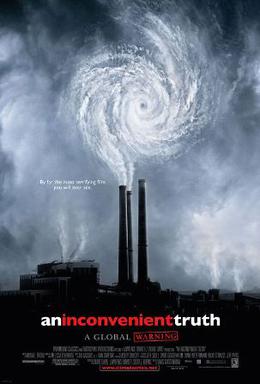Themes:
Climatic - "The design of buildings that respond to the environment involves the use of principles of solar design as also a detailed understanding of the complex interrelationship between architectural design, building materials, human behaviour and climatic factors. This kind of design, not restricted just to the use of solar energy but including the utilisation of all forms of natural energy to provide required comfort conditions within the built-up space may be defined as climatic design"
- http://mhathwar.tripod.com/thesis/climaticarch/climatic_architecture.html 28/07/2012
- "Climatic architecture aims to use climatic resources to reduce spending on energy for heating, cooling and lighting of buildings, with a view to providing a comfortable atmosphere : thermic comfort summer and winter, lighting comfort, respiratory comfort.
The objective is to strike a balance among
- the design and construction of the habitat,
- the climate and environment in which it is located,
- the inhabitants and their lifestyle."
Cultural - "A country is not only identified by its people and government, but by its architecture. “Through architecture it's possible to gauge many things about a culture, such as lifestyle, artistic sensibilities and social structure.”
For example, when one thinks of India, we think of the Tahj Mahal. Without their culture, would it be designed that way, or would it look like another building. The Egyptians are another amazing example, their environment and culture produced the great pyramids. "
- http://skunk120.hubpages.com/hub/Architecture-and-Culture#_ftn1 28/08/2012
I found an article in Architecture Australia that had quite a deep look into Architecture and Culture it was quite an interesting read however maybe a bit too deep for my 'scratching of the surface' research at the moment. Here's the link: https://www.architecturemedia.com/aa/aaissue.php?issueid=200305&article=15&typeon=3
Ecological - a google search of "Ecological Architecture" sent me straight to the Sustainable Architecture and Ecological Design Wikipedia pages. I know it's a sin to use Wiki as research but historically ive found that its a great place to start when looking for a basic understanding of something. Basically after a bit of reading I now understand that Ecological design and architecture is "any form of design that minimizes environmentally destructive impacts by integrating itself with living processes." (http://en.wikipedia.org/wiki/Ecological_design, 28/07/2012) and 'green' and sustainable building and design practices.
Economic - Again this search sent me to the wikipedia page of Architectural Design Values. Among other things the page discusses economic design values, mainly in the case of how architects become limited to successful economic expectations of the buildings design and monetary value over a quality successful design that might be more costly to the client.
Link: http://en.wikipedia.org/wiki/Architectural_design_values
Alternatively you could look at Economic Architecture in the terms of the types and styles of architecture of the big Economic and Financial institutions around the world for example the architecture of Wall Street or national centres of trade for example the former World Trade Centres of New York or the Bahrain World Trade Centre by Atkins Architects - http://www.atkinsglobal.com/projects/bahrain-world-trade-center
Geographical - To me this would be architecture that is either defined by geography ie. its location and topography or design in terms of Urban planning and geography. For example master planned cities such as Canberra or Washington. This type of architecture and planning is definitely something that interests me, especially in terms of researching and looking at what has worked and failed in the massive master planned communities.
Link - http://en.wikipedia.org/wiki/Planned_community
Political - To me this type of design I would look at it in much the same way as Economic Architecture. I'd be looking at government buildings as exemplars and research so buildings like Parliament House in Canberra or the Pentagon in Washington. This is definitely another type of Architecture that I have great interest in. Maybe you could look at government buildings or government funded buildings such as Hospitals or Jails? They're not political buildings per se but they're certainly politically funded and have heavy political influence.
Social - This search took me to LeveragingIdeas.com which discussed social architecture in terms of community, interface, interaction, behavior and emotions.
http://www.leveragingideas.com/2007/10/31/social-architecture/
Technological - Technological architecture would have to be the new, modern and futuristic side of current architecture. Specifically designing for the future, maybe even the distance future such like the scenes from the movie The Fifth Element, where flying cars and massive population density occurs. My research would definitely focus on hugely populated cities such as Hong Kong and Tokyo that already have the electronic and futuristic feel to their massively dense population.
Architecture Fiction
"Envisioning, rather than simply responding to what you see today, is essential to be able to prepare and respond to future needs. A good solution should stay relevant for a prolonged period of time. An architectural proposition should therefore be backed up with a thoughtful future vision and stratagy.
A future vision can be explained well through a scenarios with well considered contextual background and highly imaginative plot. You project site is to become a stage, your proposed architectural entity and other built environments will set scenes and your characters are to perform according to the plot and scenes you design." - DAB810_12SE2 Lecture slides week 1
The fictional future scenarios described above to me basically scream the types of situations described in the [] National Geographic Channel's TV show Doomsday Preppers. This show documents the lives of a handful of Americans that all believe that in a range of different scenarios the world as we know it is coming to an end.
Doomsday Preppers
The Preppers as they call them selves are preparing themselves for end of the modern world scenarios such as global food shortages, total electrical and power failures, petrol and oil crisis's or even the super extreme Zombie apocalypse. Maybe this is something to consider??
Alternatively the big focus in the media at the moment is all about environmental consciousness and the potential repercussions for ignoring the so called 'signs'. Former United Sates Vice President Al Gore's speech and documentary An Inconvenient Truth is centred around raising awareness about global warming and the potential outcomes of ignoring the warning signs.
So maybe future scenarios such as these need to be considered:
- Rising sea levels that displace millions of people forcing rapid and efficient design and construction of semi-permanent and permanent super high density living
- A "Day After Tomorrow" (the movie) type scenario where global warming causes a polar ice shift sending the world into an instant ice age
- Zombie Apocalypse
- Global food shortages forcing communities to become totally self sustaining
- A world without electricity?
- The end of petrol and oil?
- The mega-quake, a giant earthquake that would destroy crucial infrastructure; could a quake proof paradise be designed??


No comments:
Post a Comment